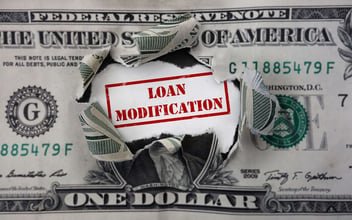Common Misconceptions About Foreclosure

Foreclosure: a word that almost universally strikes fear in the hearts of homeowners (and it should). Although foreclosure rates have steadily decreased over the last decade from their peak during the financial crisis, rates are still surprisingly high within the residential market. During Q1 2009, one in every 138 US households received a foreclosure filing compared to Q1 2019 where just one in 2,312 households received a foreclosure filing. As mortgages rates increase over the next couple years, in an effort by the Fed to help regulate the economy, and as aggregators continue to take on riskier loan files and lower underwriting requirements, there could be an uptick in foreclosure cases.
Foreclosure isn’t something any homeowner really wants to experience. Oftentimes, homeowners are forced into foreclosure as the result of the unfair housing practices of the past. Many borrowers entering into foreclosure don’t actually understand the process (it can be complicated). What’s worse, due to many misconceptions about the process, borrowers don’t truly understand their rights, or that they even have any. They don’t know that they have a right to look at alternatives, but rather believe they simply have to accept that a foreclosure is going to happen. Meanwhile, lenders often don’t want to offer alternatives even if there are known options available.
Here are a few common misconceptions regarding the foreclosure process:
1. Filing Bankruptcy Stops Foreclosure
While bankruptcy can seem like a quick fix, it can have serious implications on a person’s credit and financial well-being. It’s important to note that there are different types of bankruptcy. Many consider Chapter 13 the less severe of the two (the other being Chapter 7), and while Chapter 13 bankruptcy does usually have an automatic stay provision built-in, filing bankruptcy in this manner will not stop the foreclosure process completely. Sarah Schaut and her associates at Credit Karma state that “filing presses the pause button on the foreclosure process” and “is not a fail-safe to keeping your home.”
Keep in mind that Chapter 13 bankruptcy is really designed to set up a longer-term repayment plan that favors all parties (debtors still receive some payment and it alleviates some immediate pressure for the borrowers, ideally improving cash flow). Filing Chapter 13 bankruptcy can’t undo parts of the foreclosure process that have already been completed.
Furthermore, simply filing cannot protect a borrower from the effects of missing new payments under the repayment agreement. Breaching the new repayment schedule could result in the continuation of the foreclosure process. Understand that both foreclosure and bankruptcy are considered negative credit events. Regardless of which one you go through, either could have implications on a borrower’s ability to obtain credit in the future.
2. All Foreclosures Require Court Action
Many believe that foreclosures require some sort of action by the court in order to take effect. In actuality, many foreclosures are non-judicial. Also referred to as a statutory or “power of sale” foreclosure, this type of foreclosure does not have to go through the courts. Lenders may choose this option because it’s faster and cheaper, translating into fewer out-of-pocket expenses.
A non-judicial foreclosure is usually allowed if a mortgage or deed in trust retains a power of sale clause, meaning the lender can force a sale of the collateral (in this case your home). While non-judicial foreclosure law varies between states, lenders typically have to adhere to federal law requiring a borrower be 120 days or more delinquent in payments before beginning with foreclosure proceedings.
Borrowers usually also retain the right to reinstate the loan before a foreclosure sale. Once the sale occurs, there isn’t much you can do. A few states provide a right of redemption, meaning that after a property is sold at auction, the borrower can retain ownership of the property by paying off the successful bidder or paying the loan debt off in full.
Alternatives Are Available
Succumbing to the reality (or perceived reality) that there is no other option to prevent foreclosure can be a tough pill to swallow. Many borrowers think that if they are having trouble making their payments then there is no other choice but to enter into foreclosure. But lenders often threaten foreclosure or enter into proceedings knowing that there may be alternatives for loss mitigation. Conversely, a borrower may not know that there are alternatives available, making foreclosure seem like a logical conclusion to their struggle.
Many times, lenders have the option to offer a way to change the terms of an existing loan. This is known as a loan modification. Modifications can help lower payments, extend your term, or reduce your interest rate, making it easier for a borrower to make their mortgage payments. Modifications vary on a case-by-case basis and the change in terms can vary as well (ex. change in interest rate, change from variable to fixed-rate, change in the loan term, fee forgiveness, etc.). Further, these changes could be permanent or short-term.
Regardless of whether or not you are currently facing foreclosure or think you may in the future, knowing the facts about how foreclosure works, as well as your rights as a borrower, can make the difference between keeping or losing your home. If you are facing foreclosure, ask yourself: what are my alternatives? Explore all your options before going down this arduous path.
Sources if you would like to read more …
U.S. Foreclosure Activity Decreases 15 Percent in Q1 2019 to Lowest Levels Since Q1 2008. (2019, April 17). Retrieved May 19, 2019, from https://www.attomdata.com/news/market-trends/attom-data-solutions-q1-2019-u-s-foreclosure-market-report/
Schaut, S., Proctor, C., Cothern, L., Gellerman, E., Porter, T., Hargrave, L., & Brozic, J. (2019, April 17). Using Chapter 13 bankruptcy to stop foreclosure: Benefits and risks. Retrieved May 23, 2019, from https://www.creditkarma.com/advice/i/chapter-13-bankruptcy-foreclosure/
Hanks, M., Esq. (n.d.). What Are the Top Misconceptions People Have About Foreclosure? Retrieved May 23, 2019, from http://hankslaw.com/what-are-the-top-misconceptions-people-have-about-foreclosure/
Non-judicial Foreclosure. (n.d.). Retrieved May 23, 2019, from https://www.zillow.com/foreclosures/glossary/non-judicial-foreclosure/
Loftsgordon, A. (2015, May 07). How Nonjudicial Foreclosures Work. Retrieved May 23, 2019, from https://www.nolo.com/legal-encyclopedia/how-foreclosure-works-30066-2.html
Crone, E. S. (2018, December 20). All You Need to Know About Mortgage Loan Modifications. Retrieved May 24, 2019, from https://www.nerdwallet.com/blog/mortgages/all-you-need-to-know-about-mortgage-loan-modifications/


